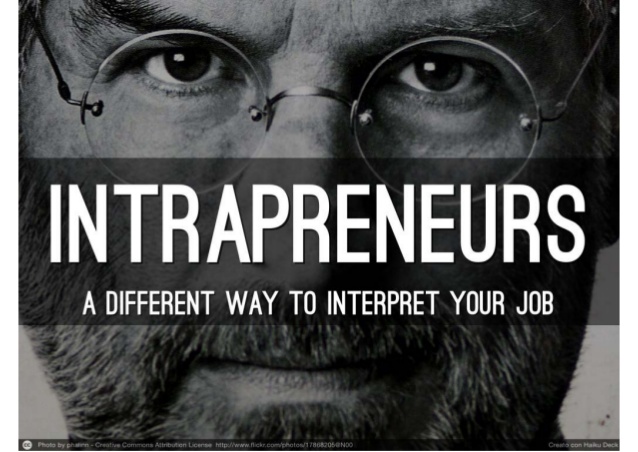The Intrapreneurs’ Factory
Intrapreneurship is an employee(s) initiative for developing new business within established firms, somehow different from the core business.
The value creation is far from an all-or-nothing game; it blossoms in many directions:
- Intrapreneurship sparks new business lines: consider that Gmail, The Facebook like button, or the Sony Playstation were unraveled

Do intrapreneurs exist without programs for intrapreneurs? Surely, and they can achieve feats! But we are strong believers they thrive when the corporation makes it a little bit easier, and shapes a supportive framework: this is why we wrote the Intrapreneurs’ Factory book.
It’s a practical guide for corporate managers and intrapreneurs, which takes you through 10 shrewd steps to build a program for intrapreneurs, and let you discover over 20 exemplary intrapreneurs stories. For each step, the book lists the key questions, and proposes accurate examples that constitute a precious source of inspiration.

As Véronique Bouchard, full professor emlyon business school, and intrapreneurship expert, puts it: it’s “A wealth of good advice, and recent use cases, And indeed, this guide tells the story of 40 companies – AccorHotels, Airbus, Air France, Air Liquide, BNP Paribas, Bosch, Bouygues, Coca-Cola, Continental, Deutsche Telekom, Deutsche Bahn, Engie, Google, La Poste, Lufthansa IT, LVMH, makesense, Merck, French Ministry of the Armed Forces, Nexity, Nissan Europe, Orange, Red Cross France, SNCF, Société Générale, Safran, Spring Lab, Swisscom, Telefonica, Thales, Tilkee, Total, Trumpf, Vinci – which make use of intrapreneurship.
Intrapreneurship is a powerful engine which requires handy driving: sponsorship (step 3), clear deadlines, and tight intrapreneurs’ coaching (step 5), business commitment (steps 6) are the most prevalent:
- One needs to create a positive ecosystem around the intrapreneur, and turn non-expert collaborators into innovation leaders: coaching is paramoint as well as helping to weave a network of allies;
- The rythm of intrapreneurs’ project is different from that of the corporation: it’s a creative tension that disrupts the corporate culture. Lean, flexible, and fast incubation sees, in a few months, a consistent and cohesive team test, learn, iterate, and pass the gates toward product/market fit, efficiency, and reliable scaling.
- The relationsip with the business has to start upstream, and build on trust to spot the opportunity created for the business unit: henceforth intrapreneur and its partnering business unit have to prepare jointly the scale-up.

Prefacing the book, Ash Maurya, author of Running Lean and Scaling Lean, creator of Lean Canvas, points out:
“Startups fail because they struggle to find customers. Corporates fail because they stop talking to their own customers. Learning from customers is ever so important in today’s world where we are more connected to customers than ever before. Companies that outlearn their competition win. Period. So why is this difficult?
In theory, corporates should never lose against startups because they have more resources and access to customers. The reason they do is they often can’t match the agility of a startup. Speed of learning is the new unfair advantage and going fast requires a new playbook.
Nicolas’ book delivers just that. It’s full of concrete examples, recipes, and tactics from some of the top corporates in the world. It will inspire you to start or refine your intrapreneurship journey in the right direction.”

Impactful intrapreneurship is creating new business, and talent. Intrapreneurs are not product managers: they are value creation managers!
The 20 intrapreneurs stories of the book unearth multiform benefits and outcomes:
- The ability to capture customer insights, marking off the problem at stake, and swiftly test new business in this sandbox;
- The transfer of a dizzying innovation skill set, the desire to take risks, and the transformation into a startup leader, someone who is going beyond his own limits;
- The visibility for the idea owner, and a chance to convince a sponsor;
- The incorporation of social into an innovative and business-driven service;
- The adoption of digital Give your innovation a chance to be quicker, more frugal, and closer to the business through the Intrapreneurs’ Factory!


Image credits: Nicolas Bry, Raffaele Loscialpo
- Weekly — Email Newsletter —
